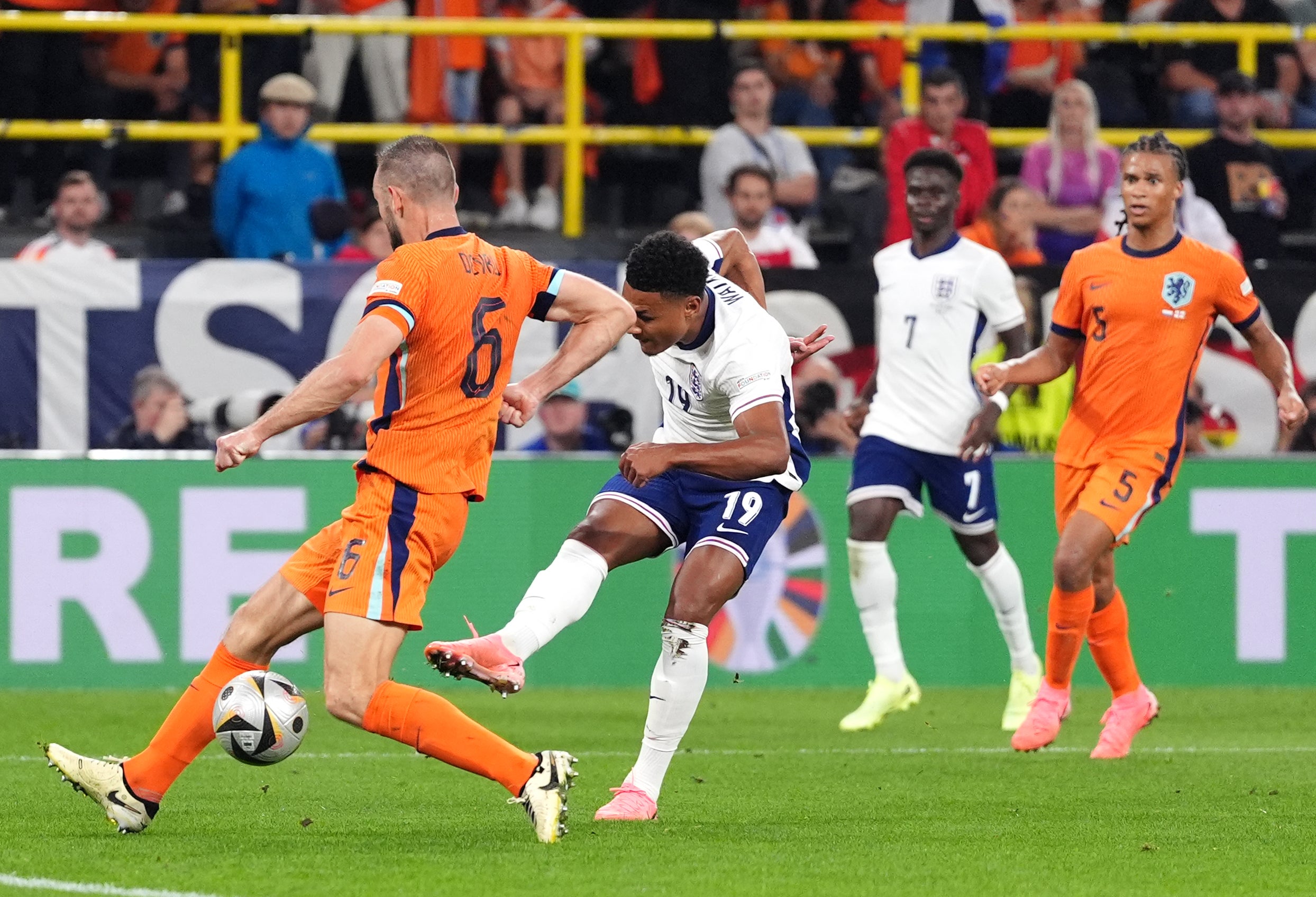There was a delightedly simple statement from Gareth Southgate, having got over so many complications and questions. “I am a proud Englishman.” That is why he took the job in the first place but it obviously had a greater feeling after delivering the national team to a second final in three years and just a third in history. It also has a greater meaning.
In the elated aftermath of his side’s 2-1 semi-final victory over the Netherlands, Southgate enthused about traditional continental qualities like an England team that “had 60 per cent of the ball against the Netherlands”, to go with so many modern sports science approaches that have fired this team so far. There was also something quintessentially English about this, though.
When foreign players and managers have talked about the Premier League and the divisions below it, they have often been struck by the ferocity of the competitiveness – the willingness to keep going; a perseverance. That has been marketed in the modern world as “anyone can beat anyone” but has referred to the honest will of English sides. This wasn’t always complimentary, either. It was occasionally spoken of as if there was a naivety to it. This was seen as blustering stars wastefully chasing lost causes, as a force that expended energy.
By the same token, there has always been a respect for how English sides have kept going until the end.
This is a trait that Southgate and his staff have now properly focused and honed, through strategy and science. It has also meant that a phrase to sum up England’s campaign – and is starting to be said around the camp – is that it isn’t how you start, it’s how you finish.
That applies to virtually everything about the squad’s Euro 2024 campaign, from the goals and the players used, to the matches themselves and even the entire tournament.

You only have to consider how all those complaints and debates from the group stage now seem irrelevant. England got through all that and those flaws actually ended up serving to strengthen the squad. Their persistence brought resolve.
That was bolstered by how they got through those matches, too, which all involved invigorating late drama in different ways. For the Slovakia last-16 match, it was a scarcely believable 95th-minute overhead kick equaliser to keep England in the tournament. For the Switzerland quarter-final, it was penalties in a shoot-out, but all taken with a supreme confidence that only added to belief rather than nerves. For the Netherlands semi-final, then, there was a vintage late winner.
That isn’t just a way to get through. It’s a way to feel your name is on the trophy.
There are then the actual names involved, and how they were used. As Southgate has made such a point of stressing, so many have been players who had to wait for their chance. Ivan Toney set up the last-16 winner, before scoring a crucial penalty in the quarter-final. Cole Palmer and Trent Alexander-Arnold stepped up, too, before Ollie Watkins claimed that swishing finish against the Dutch.
All of this illustrates something else, directly related to how England start those games. For all the commotion about the XI picked for kick-off, that simply doesn’t matter as much as it used to because modern international matches are so intense and tactical, and the modern England have so much talent. The demands of all games mean they involve multiple subs anyway. In the Dutch game alone, there were two major tactical switches, with both managers responding to each other. There are plenty of different players you can use. It might be England’s greatest strength and maybe their single main advantage over Spain.

Southgate has more individual talent to bring on and change things. That might be essential if the game goes as expected and Spain seek to exhaust England through pure possession.
It also means there probably isn’t much point in expending energy on what is set to be one of the huge debates in the build-up to the final. That is whether to drop Harry Kane.
People can forget about that. It’s just not going to happen. It also doesn’t really matter in the way it used to. This isn’t Tottenham Hotspur in the 2019 Champions League final. England have different options. Southgate can, of course, put on his most dependable striker for a major career moment, but then has the option to try something different. It may even be extra useful for the final in that it could suddenly give Spain a different tactical problem to solve at a crucial moment. Having Watkins or Toney running in behind could be seismic in a match where a high-lined defence has mostly been dealing with Kane’s positioning.
Someone might be in better condition to offer the finish required. English teams have long gone right to the end, although often chasing lost causes. It has been the story of so many failures. That narrative may now have a different ending, for a success that has so much modern and continental influence, but with that quintessentially English twist.

